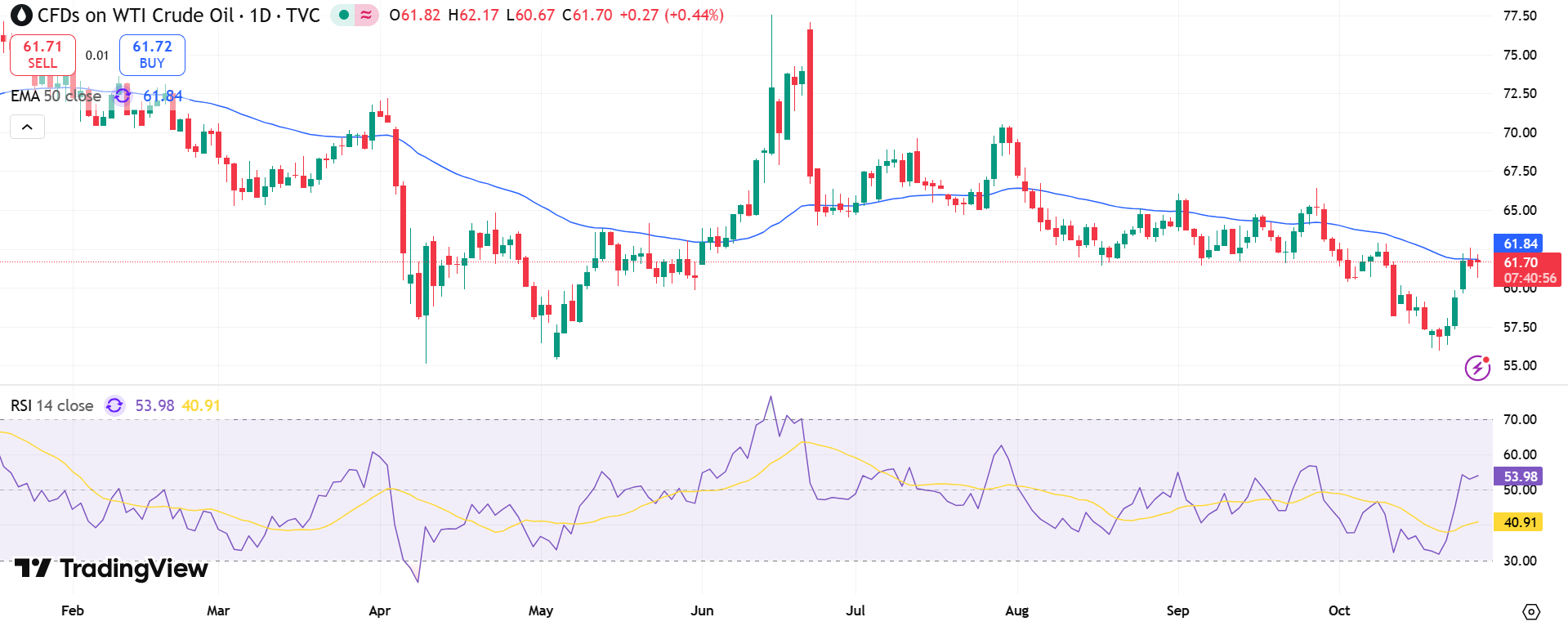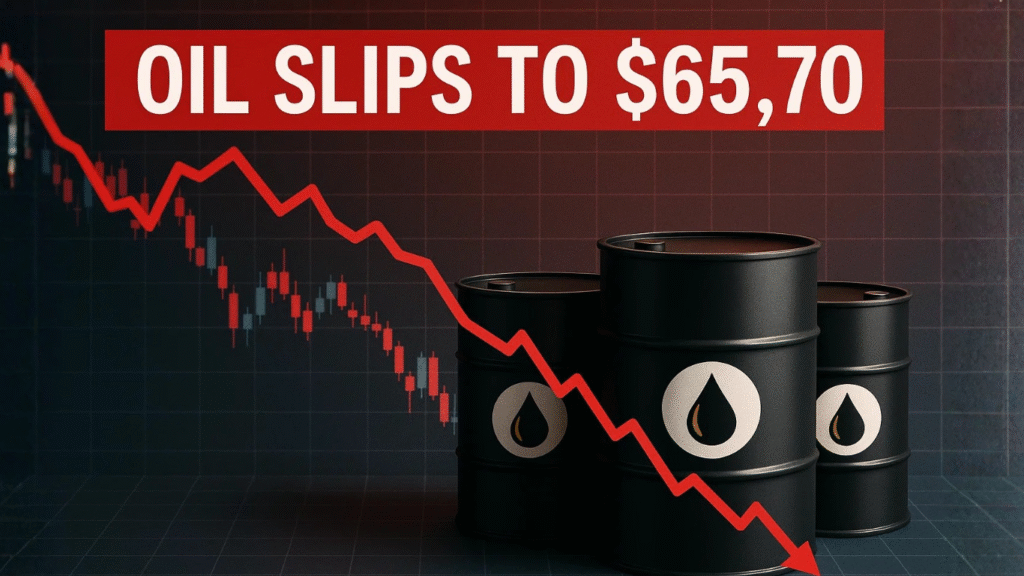Oil prices edged lower on Monday, giving up early gains as traders questioned whether the newly announced U.S.–China trade framework would meaningfully boost energy demand. Additional pressure came after Iraq confirmed exports remained unaffected by a weekend oilfield fire, easing supply concerns.
Brent crude futures slipped 24 cents, or 0.4%, to $65.70 per barrel at 11:13 GMT, while U.S. West Texas Intermediate (WTI) dropped 24 cents to $61.26.
The decline followed comments from U.S. Treasury Secretary Scott Bessent, who said Washington and Beijing had reached a “substantial framework” that could avoid 100% tariffs on Chinese goods and delay China’s rare-earth export restrictions. While global equity markets reacted positively, oil failed to sustain momentum as traders assessed the limited near-term impact on consumption.
“Oil market participants are far more skeptical of trade deals than their equity counterparts,” said John Evans, analyst at PVM Oil Associates. “A positive negotiating tone doesn’t immediately translate into stronger demand.”
Demand Concerns Continue to Pressure Crude
Despite recent gains, the oil market remains clouded by demand-side uncertainty. Earlier this month, Brent fell to its lowest level since May, as traders weighed sluggish industrial activity in Asia and Europe against steady U.S. consumption.
According to Chris Beauchamp, chief market analyst at IG Bank, “The hope for bulls is that U.S. consumption continues to recover; otherwise, the current drift lower could intensify.”
Key market factors influencing sentiment include:
- U.S. sanctions on Russia tightening global supply channels
- OPEC+ output increases offsetting earlier production cuts
- China’s slower industrial demand despite easing trade tensions
Last week, Brent rose 8.9% and WTI climbed 7.7%, supported by Western sanctions targeting Russian oil exports. However, analysts warn that enforcement remains inconsistent.
“There are still hurdles for Russian crude to find buyers,” said Janiv Shah of Rystad Energy, “but the true impact depends on how strictly sanctions are applied.”

Iraq’s Output Steady After Zubair Fire
In supply news, Iraq’s Oil Minister Hayan Abdel-Ghani confirmed that the Zubair oilfield fire on Sunday had no impact on exports, calming fears of disruption. Iraq, OPEC’s largest overproducer, is now negotiating its quota under the group’s revised production framework, which targets 5.5 million barrels per day of capacity.
OPEC and its allies have reversed several production cuts this year in a bid to reclaim market share, helping to cap price rallies despite geopolitical pressures.
As of now, oil traders remain focused on global demand signals rather than diplomatic optimism. Without stronger consumption data, analysts say crude may struggle to regain upward momentum through the week.


